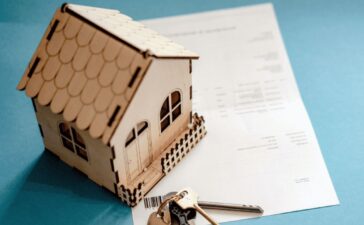For many entrepreneurs, buying an existing business is a more appealing option than starting a new one from scratch. There are several advantages to this approach, which include:
- It already has a customer base, which can help get the new business off the ground more quickly. In addition, an existing business typically comes with a well-established brand and reputation, which can save the new owner time and money in advertising and marketing costs.
- Another benefit of buying an existing business is providing a ready-made infrastructure, including employees, inventory, and suppliers. This can be helpful for someone who wants to start a business but doesn’t have the time or resources to build everything from scratch.
Of course, there are also risks associated with buying an existing business, such as taking on unknown liabilities or inheriting outdated technology. However, these risks can be minimized with careful research and due diligence. This post will discuss the most important things to consider when buying a business. These should help you reduce the risks associated with the entire process. Also, doing the due diligence will ensure that you have a smooth transition once you purchase the business. Let’s delve in!
The seller’s motive
When considering buying an existing business, it’s important to understand the seller’s motives. While there are many reasons why a business owner may choose to sell, the most common motive is simply to retire or move on to other ventures. In these cases, the seller is usually motivated by a desire to cash out and may be open to negotiations.
However, there are also times when the seller faces financial difficulties or other pressing problems. In these situations, the seller may be motivated by a need for a quick sale and may be less open to negotiation. Therefore, it’s important to do your due diligence and understand the seller’s motivations before making an offer. You can ensure that you’re getting a fair price and avoid any potential surprises down the road.
The financials of the business
As any prospective business owner knows, due diligence is essential when considering the purchase of an existing business. One key area of focus should be the financials of the business. A full understanding of the business’s financial situation will help to ensure that you are paying a fair price for the business and that it will be able to meet your financial expectations.
Additionally, a careful review of the financials can reveal red flags that might otherwise be overlooked. For instance, if a business is carrying a large amount of debt, it may be riskier than initially thought. As such, taking the time to understand the financials of a potential purchase is crucial to making a sound investment.
Existing contracts in place with suppliers, customers, and employees
When you’re buying an existing business, there are many things to consider – but one of the most important is the contracts that are already in place. Existing contracts with suppliers, customers, and employees can greatly impact your business, so it’s important to understand what you’re getting into before you sign on the dotted line.
If the current contracts are favorable, they can provide a great foundation for your new business. However, if they’re not – or due to expire soon – you may need to renegotiate or replace them. Either way, it’s important to do your homework and know what you’re getting into before you finalize the deal.
The location of the business
When considering the purchase of an existing business, one of the most important factors to consider is the location of the business. After all, the location can significantly impact the business’s bottom line. If the business is located in a high-traffic area, it will likely see more foot traffic and generate more sales. However, a high-traffic location also comes with higher rent and utility costs. On the other hand, a business located in a less desirable area may have lower overhead costs, but it will also likely see less foot traffic.
Another important consideration is the size of the premises. The business should have enough space to accommodate all equipment and inventory. Finally, the rent should be reasonable. With the right location, you will be well on your way to owning a successful business.
Legal liabilities
When you buy an existing business, you may be assuming responsibility for certain legal liabilities. For example, if the previous owner did not comply with environmental regulations, you could be held liable for any resulting damage. Additionally, if the business has any outstanding loans or other debts, you will be responsible for paying them off.
According to the professional Orlando Business Broker, it is important to do your due diligence before buying a business to avoid taking on more liability than you are comfortable with. Talk to a lawyer and an accountant to better understand what you may be responsible for if you purchase a particular business. With this knowledge in hand, you can make a more informed decision about whether or not to move forward with the purchase.
The reputation of the business
Another key factor in evaluating is the reputation of the business. This includes both the current reputation and any history of negative publicity. You want to avoid any businesses with a history of legal or financial problems. But even a business with a clean record can have a negative reputation that could make it difficult to succeed.
If the business has a good reputation, that’s a positive sign that it will be a successful investment. However, if the business has a negative reputation, it’s important to weigh that against other factors before deciding whether or not to proceed with the purchase. Therefore, it’s important to do your research and understand the business’s reputation before making any decisions.






